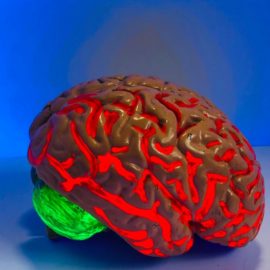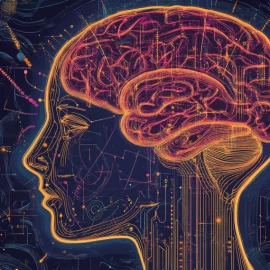
Is your intuition leading you astray? How can you make better life choices using hard data instead of gut feelings?
In his book Don’t Trust Your Gut, Seth Stephens-Davidowitz reveals that data-based decision-making is far more reliable than human intuition. He explains how our minds are full of cognitive biases and how we’re easily misled by exceptional stories that we mistakenly believe represent the norm.
Keep reading to discover how researchers are determining which choices actually lead to positive outcomes.
Data-Based Decision-Making
The title—“don’t trust your gut”—speaks directly to Stephens-Davidowitz’s basic premise: namely, that hard data is a better guide to making decisions than human intuition. Let’s look at the reasoning behind this statement and where the data we might turn to comes from.
(Shortform note: Stephens-Davidowitz explores data-based decision-making in layman’s terms, but if you’re interested in crunching the numbers yourself, Steven Silbiger’s The Ten-Day MBA offers a guide to various data analysis tools that are commonly used in the business world. One tool is the decision matrix, wherein you compare different options by scoring them based on factors that are important to you and determine the best choice from there. Other tools you can use are probability analyses and regression analyses. Applying these techniques to non-business scenarios may be a creative challenge, but Stephens-Davidowitz’s work shows that it can be done.)
Stephens-Davidowitz’s case against intuition is twofold. First he points out that the human mind is riddled with cognitive biases and misleading mental shortcuts. We can’t help it—these errors spring from the mental shorthand our brains use to quickly process information, making “common sense” on the individual level and “conventional wisdom” when applied to society at large. And we’re not always wrong—but Stephens-Davidowitz proposes that common sense is wrong often enough that we shouldn’t fully trust it if we have a better option.
(Shortform note: In Super Thinking, Gabriel Weinberg and Lauren McCann go into more detail about the pitfalls of common sense and intuition. They propose that both conventional wisdom and your gut instincts are based on rigid assumptions. Common sense draws upon shared societal beliefs that often go unquestioned, whether or not they’re true, whereas intuition can be inappropriate if you assume you can rely on it in situations that call for deliberative thought.)
In addition to our untrustworthy instincts, we also frequently fall victim to misleading narratives. The most common trend that Stephens-Davidowitz points to is that society fixates on extraordinary stories to the point that they’re not seen as outliers. For example, consider the age-old cliché of the Hollywood star who’s “discovered” by chance while waiting tables in an LA restaurant. Such stories draw attention because they’re unusual. But, because we hear them more often than the more common experience of persistence and rejection, we begin to think of the “one-in-a-million” rise to Hollywood fame as the rule, not the exception.
(Shortform note: In addition to being misleading, as Stephens-Davidowitz states, exceptional success stories can also be toxic. In The Antidote, Oliver Burkeman argues that feeling inspired by these stories undermines your efforts to copy them. For instance, if you want to be a movie star and picture yourself winning the same awards as your hero, you feel a premature sense of success that tricks your brain into believing you’ve already done the work to achieve it. This, in turn, weakens your motivation while setting unrealistic expectations for success.)
If commonplace narratives can’t be trusted, where can we turn for accurate information? For individuals, there’s no quick and easy answer. But Stephens-Davidowitz says that, for data scientists studying the human condition, smartphones are a goldmine. Using anonymized smartphone usage statistics, combined with census and tax return data, modern researchers can use analytics to measure and correlate aspects of human behavior to an unprecedented degree. Data scientists can use trends in internet searches, app usage, online commerce, and travel patterns to determine which choices people make have the greatest positive and negative outcomes.
(Shortform note: In the studies Stephens-Davidowitz cites, the data collected was anonymized or given freely in a context he presents as being largely benign. However, some contend that many technology companies’ data collection practices aren’t quite as harmless: In The Age of Surveillance Capitalism, Shoshana Zuboff argues that digital data collection isn’t used to better serve customers’ needs, but to sell predictions about user behavior. This approach turns consumers into products, with people’s thoughts, actions, and emotions driving a cycle of consumerism.)






